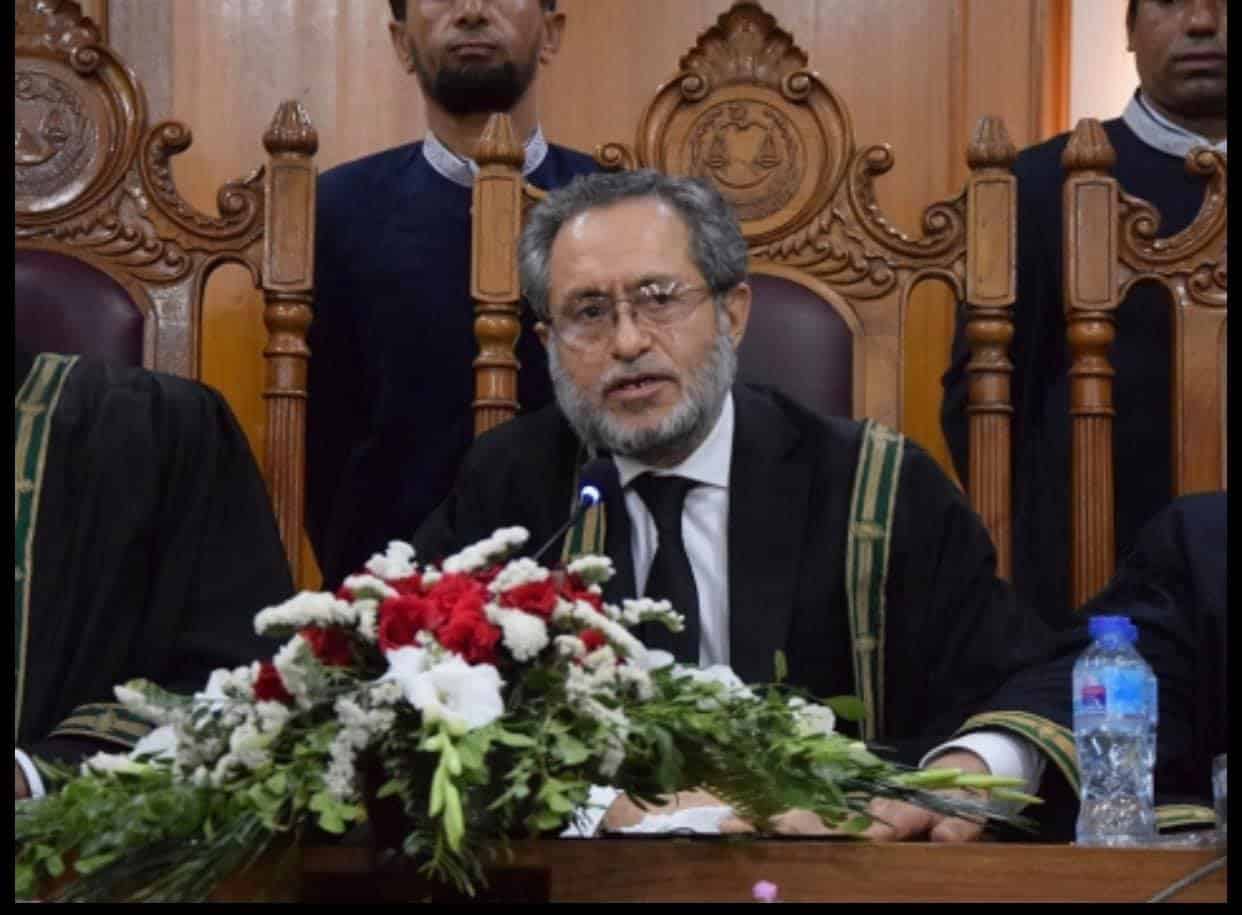The Supreme Court (SC) on Wednesday resumed hearing PTI’s petition against the decision of the Election Commission of Pakistan’s (ECP) to delay polls for Punjab Assembly.
A five-member larger bench — headed by Chief Justice of Pakistan (CJP) Umar Ata Bandial and comprising Justice Ijazul Ahsan, Justice Munib Akhtar, Justice Jamal Khan Mandokhail and Justice Aminuddin Khan — is hearing the case.
During the hearing yesterday, Justice Bandial observed that the ECP did not have any right or legal backing to extend the election date till October 8 and asked the Attorney-General for Pakistan (AGP) to get instructions from the federal government in this regard.
However, when hearing resumed today, Justice Mandokhail, explaining yesterday’s remarks, said that there was a lot of confusion on his comments and he wanted to clarify them. “I stand by my detailed order. One part of the judgement is related to the rules of administrative powers, and that the Chief Justice will be asked to form a committee of judges to look at the rules, the committee of judges will look at the rules of administrative powers, in the second part of the judgment, we four judges have automatically rejected the notices and petitions,” said Mandokhail.
Justice Mandokhail stated that according to him the verdict of the four judges in the suo motu case was the ‘order of the court’. “The CJP has not issued an ‘order of the court’ to date.
Justice Mandokhail said that the decision of the four judges is the order of the court. “The Chief Justice of Pakistan did not issue this order of the court. How did the president give the election date when there was no decision? Has the ECP released the schedule? Today bring in court record file; it [will not] have the order of the court; all the judges sign the order of the court.”
He said that he stands by the brief and detailed decision he gave.
The judge also said that the decision on who will take a suo motu case was an “internal matter” of the court.
Here, the CJP noted that Justice Mandokhail had given his explanation but the latter interjected him, saying that he was still speaking.
Subsequently, PPP lawyer Farooq H. Naek demanded that a full court bench be constituted to hear the case to which Justice Mandokhail said: “Why full court? The same seven-member bench should hear the case.”
However, the PPP lawyer contended that the current situation called for the formation of a full court bench. He also highlighted that clarification was needed regarding the SC’s March 1 verdict.
At that, the chief justice told Naek to submit a written request in court.
Bill:
The government on Tuesday tabled a bill titled “The Supreme Court (Practice and Protection) Bill, 2023” in the National Assembly and adopted a resolution holding “undue interference by the judiciary in political matters as a cause of political instability in the country”.
It is expected that the standing committee will pass the bill in its meeting scheduled for today.
The bill proposes a committee of three judges headed by the chief justice which will be empowered to take suo motu notice as opposed to the earlier practice, which allowed the CJP to initiate proceedings under Article 184(3) in an individual capacity.
According to the proposed law, every cause, appeal, or matter before the Supreme Court shall be heard and disposed of by a bench constituted by the committee comprising the CJP and two senior-most judges in order of seniority. It added that the decisions of the committee shall be by majority.
In the bill, the right of appeal is being given to the accused party for the first time, which will be allowed to file an intra-court appeal within 30 days from the date of suo motu notice.







